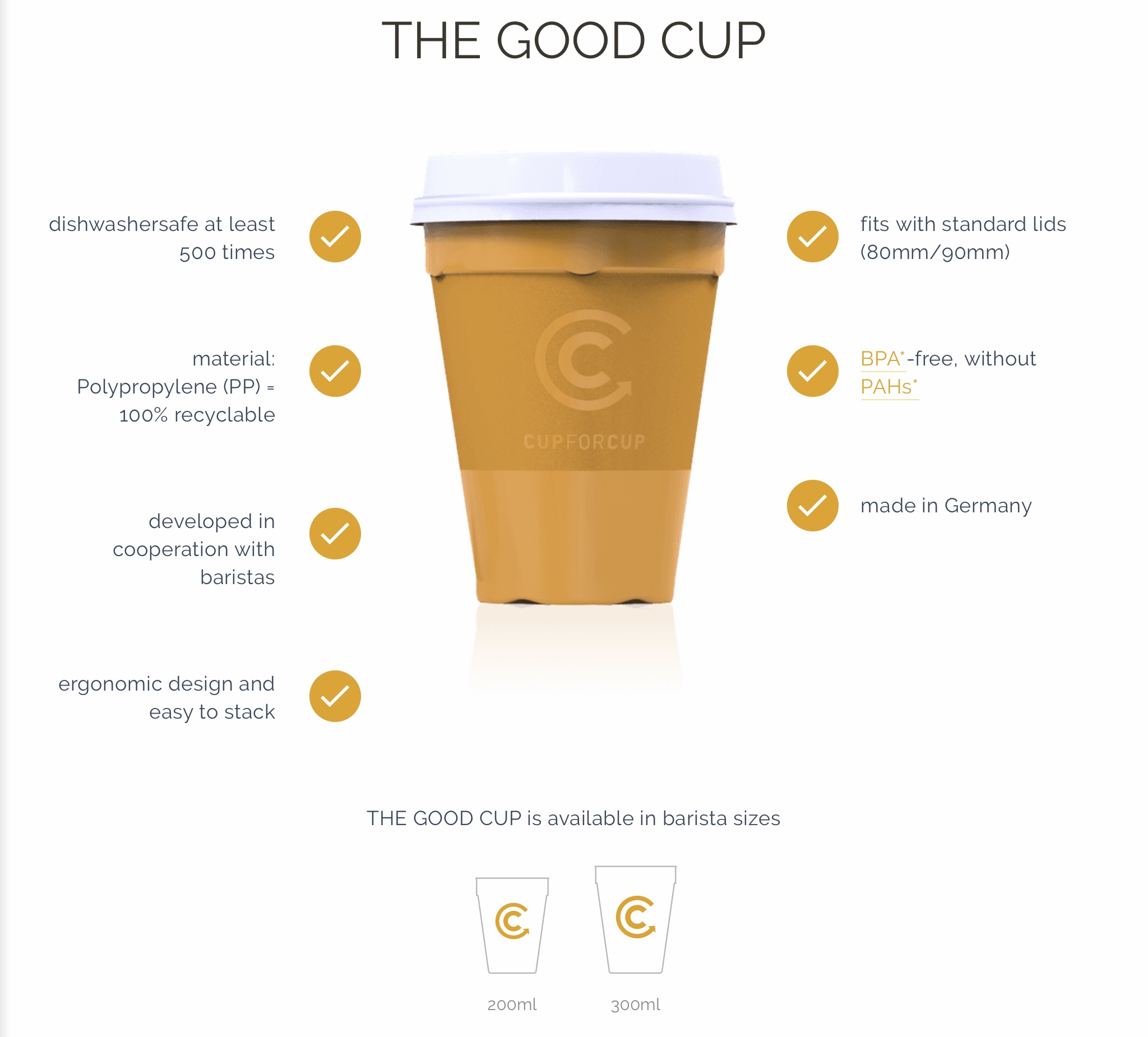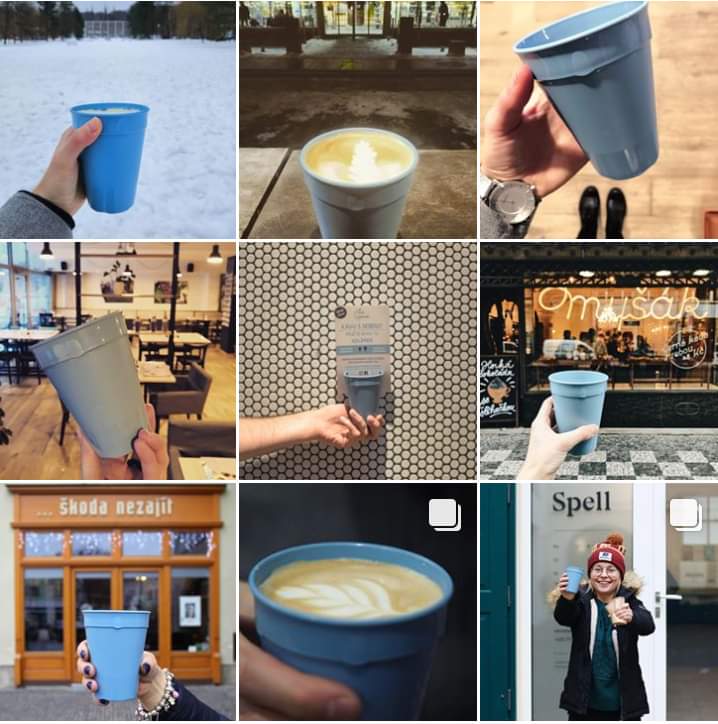
- Sustainable Planet -
- 3mins -
- 388 views
“Cup for Cup”; an open return system to tackle waste from single-use coffee cups
A system whereby a hard plastic takeaway cup that customers can obtain for a small deposit and return to any participating business across their city might just be the answer to the coffee cup crisis.
Returnable cup initiatives are rapidly catching on with the conscientious coffee consumers
The Freiburg Cup program has been hugely successful in its first year, especially among students on the university campus. Other cities throughout Germany have expressed interest in replicating the program. Another initiative, the ‘CupForCup’ program has already spread north from Germany, up through the Netherlands, all the way as far as Denmark. Meanwhile OTOČ KELÍMEK (Flip-the-Cup) is taking off in the Czech Republic. These returnable cup initiatives are rapidly catching on with the conscientious coffee consumer.
The Freiburg Cup is one of many returnable cup schemes springing up around Europe
Whether grabbing a coffee, smoothie, or water from the fountain, paper, plastic and styrofoam disposable cups are everywhere.
After using them to drink your single beverage, they’re thrown away and either remain in a landfill for years, or slowly decompose and leach toxins into the environment.
The easy answer would be to carry a reusable cup with you at all times, but in practice that doesn’t always work out.
So the German city Freiburg has implemented a scheme to provide citizens with an easy reusable cup system.
Rather than expecting its residents to bring their own, or buy a brand new one on the spot, Freiburg has created the Freiburg Cup, a hard plastic takeaway cup with a disposable lid that customers can obtain with a €1 deposit and return to any one of the 100 participating businesses across the city.
Participating stores have an identifying green sticker in the window. When you return the cup, these stores will disinfect and reuse the cups, which can be reused up to 400 times.
This reusable cup option is particularly relevant in Germany where approximately 300,000 cups of coffee are consumed per hour, totalling some 2.8 billion coffee cups a year, all of which are used for an average of 13 minutes before being tossed out.
The Freiburg Cup is plastic, it’s made from polypropylene and does not contain BPA or plasticisers. Polypropylene is fairly heat resistant and considered "relatively safe."
Source: WorldEconomicForum.com

Why you should say NO to Styrofoam
"Styrofoam" is actually just a brand name. The white material making up your coffee cup is actually called expanded polystyrene (EPS) and it’s doing a number of things to the environment.
Polystyrene is actually just another type of plastic. It can be expanded into the foam material that we all know as "Styrofoam" by expanding it with 95% air. It is often used for packaging fragile products, or insulating hot food and beverages.
Styrofoam is a big part of the plastic problem in our oceans. Being 95% air, its buoyancy allows it to float down waterways, eventually making it to the ocean where it gets broken down into smaller pieces and ingested by marine life.
Lightweight Styrofoam is easily carried away by wind and often ends up in places other than the landfill. Unfortunately, rogue Styrofoam ends up littering streets and beaches, clogging storm pipes, and harming animals. In order to protect wildlife, Antarctica has prohibited polystyrene.
That single-use Styrofoam cup doesn’t just go away after you toss it in the bin. The Department of Sanitation concluded that expanded polystyrene cannot be recycled, despite the fact that many of the containers display the recycling symbol.
Plus, Styrofoam sitting in the landfill releases methane gases that have over 20 times the ozone destroying potency as CO2.
And Styrofoam isn’t just bad for the environment; it’s bad for your health too
Styrene (a component of polystyrene) is a harmful chemical that can leech into food and drink. Even worse, styrene is classified as a carcinogen to humans according to the National Research Council . Back in 1986, a study by the EPA detected Styrene in 100% of human tissue and breast milk samples.
So remember, the health of tomorrow’s planet depends of what we toss out today! While the alternatives may be a little more expensive, the cost to the environment makes the decision a no brainer. Say no to Styrofoam!
Source: 1MillionWomen


